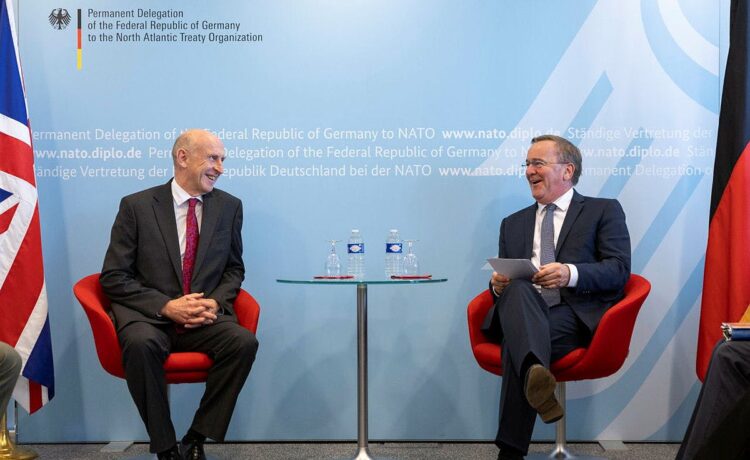Two of Europe’s largest defence companies have announced significant investments in the UK defence industry, following the signing of the landmark Trinity House Agreement between the UK and Germany.
The agreement, signed in London, strengthens ties between the two countries’ armed forces and defence industries, marking a new era of collaboration in European security and economic growth.
Helsing, one of Europe’s fastest-growing defence companies, revealed plans to invest £350 million in UK-based AI technology over the next five years. This investment aims to accelerate the deployment of AI-enabled systems at an unprecedented scale, enhancing the UK’s capabilities in advanced defence technology.
Rheinmetall, a major German defence manufacturer, also announced it will build an artillery gun barrel factory in the UK, supporting over 400 jobs and contributing nearly half a billion pounds to the UK economy over the next decade. The new facility will use British steel, supplied by Sheffield Forgemasters, and will be the first time the UK has produced artillery gun barrels in ten years, with production set to begin in 2027.
Defence Secretary John Healey MP welcomed the investments, stating, “These significant new investments from Helsing and Rheinmetall are a hugely welcome boost to the UK defence industry. It shows how our landmark UK-Germany defence agreement can help drive our defence industries forward, creating highly-skilled jobs and boosting economic growth.”
He added, “From traditional weapons manufacturing to the capabilities of the future, today’s investments by two of Europe’s largest defence companies demonstrate the renewed confidence of investors in the UK defence industrial base.”
The investments are part of a broader effort to enhance European defence cooperation. The Trinity House Agreement includes key projects such as joint development of new long-range strike weapons, expanded training and exercises between the UK and German armies on NATO’s eastern flank, and periodic operations of German P8 aircraft from RAF Lossiemouth to bolster security in the North Atlantic.
Helsing’s investment will also support critical projects outlined in the agreement, including efforts to assist Ukraine and digitise underwater surveillance to protect vital infrastructure.
Co-Founder and Co-CEO of Helsing, Dr Gundbert Scherf, highlighted the urgency of meeting common defence challenges, stating, “Meeting common threats will only be achieved with a shared sense of urgency and a tech industrial base to match this with delivery at speed and scale. Now we’re doubling down with a multi-year commitment to invest at least £350m in the UK to maximise its national strengths.”
Rheinmetall, which already has a significant presence in the UK through its production of military vehicles such as the Challenger 3 tank and Boxer armoured vehicles, sees the new gun barrel facility as a forward-thinking step. Armin Papperger, CEO and Chairman of Rheinmetall AG, remarked, “Rheinmetall’s investment in the gun hall reflects a forward-looking approach to innovation, collaboration, and national defence. It ensures the UK remains a leader in developing and manufacturing defence technologies that safeguard both national and global security.”
With these major investments and the signing of the Trinity House Agreement, the UK and Germany are securing substantial economic and industrial benefits for the future.
















